Running alongside my career in digital marketing, I’ve always had a passion for music. I’ve played the guitar for 16 years, played in several touring bands and even graduated in a Music-related subject in July 2012.
With these two subjects running parallel to one another, I have always been interested in how the two coincide, especially since digitalisation has caused the music industry to entirely overhaul its business model over the past decade or so.
Although I have met and worked with several ex-music business professionals within the search marketing industry, seldom do I find someone within the music industry who actually utilises the discipline. It’s not like it hasn’t happened, I’m just more likely to find businesses from other sectors first who appreciate the value search marketing can bring to their business. To many music business professionals, it’s as though the world of search remains a mystery.
I have, therefore, written this post not only out of my personal enjoyment for both subjects, but to inform those who work in music business how they can use search to develop their overall digital strategy.
The reality is that, although important, social media doesn’t need to be the music business’s sole marketing channel. Numerous case studies have occurred that prove the value search can bring to a music business’s bottom line, music marketers just need to better understand the discipline to gauge exactly where it fits within the industry’s marketing funnel. With this in mind, consider this a beginner’s guide to utilising search engine marketing (SEM), and in particular, search engine optimisation (SEO) for the Music Business. I consider this guide to be applicable to both artists and service-based music businesses so you should find it useful wherever you’re positioned within the industry.
Why artists and music businesses should consider search marketing
In May 2016, Google revealed that they handle at least 2 trillion searches per year. This equates to 167 billion per month and 5.5 billion per day; an undoubtedly large amount of activity for one website.
In addition to this, search engines are still the primary driver of web traffic, according to SimilarWeb, and constitute 29% of all referral traffic across the web. Although this may seem relatively small at first, it’s a surprising statistic considering that social media only constitutes 6% of all referral traffic.
When you pair these two statistics together, there can be absolutely no doubt that search engines serve as the primary method of web navigation for all users, everywhere. The rationale for concentrating on Music SEO is therefore fairly self-explanatory: if the majority of web users use search engines to navigate the web, it follows that as music marketers, you need to be there amongst them.
Another valuable characteristic of search engines is the nature of traffic they refer. Ultimately, it’s targeted traffic straight to your web property. Consumers will use search engines to actively find the services and music you offer, so it’s important to be present on the medium to potentially capture that traffic. Search engines are immediate, delivering your target audience straight to your site.
A final point that artists and music businesses need to consider is the best practice SEO promotes with regards to digital marketing activity in general. Search marketing is intrinsically related to several marketing disciplines, from general website usability to content marketing, social media and digital PR. By investing in search as a music marketer, it encourages you to become more integrated with your overall digital strategy. Spotify’s launch campaign back in 2011 is a great example of this as it used various integrated channels and strategies to help successfully launch its streaming service. Amongst these strategies were influencer marketing and digital PR. It’s funny, therefore, that this was the partial brainchild of a previous SEO, Shakil Khan. (I appreciate my bias in drawing my own conclusions here; Spotify’s success is obviously attributable to several factors, not just the fact that they have an SEO onboard. However, this should successfully illustrate the point that SEO can allow for more strings to your digital marketing bow.)
Think of search’s relationship to digital marketing similar to music theory’s relationship to songwriting; those who know it arguably become more well-rounded as a practitioner overall.
Examples of music businesses utilising search marketing
Some of you may be sceptical of SEO’s existence within the music business so I just wanted to quickly present two case studies that completely debunk this theory. Below are two businesses that have proven to rely on SEO as a channel for audience acquisition.
- Genius Lyrics – https://genius.com/
Genius is a song lyric platform that allows their users to read the lyrics of their favourite songs whilst annotating them to explain their meaning and cultural significance. It’s undeniably a great USP and a fantastic method of obtaining user generated content. To date, their catalogue holds approximately over 8.5 million songs.Genius’s utilisation of SEO has been well documented throughout the digital marketing industry. Rightly or wrongly, this was mainly owed to the fact that Google’s Penguin algorithm landed them a penalty back in 2013 for their supposed adoption of questionable link schemes. This is something they went on to outright refuse in an open letter to the search giant themselves. Prior to this, writer Tom Harari had even suggested on-page SEO strategies for Genius in order to boost their organic visibility. Supposedly, Genius actually adopted some of these techniques and after resolving their penguin penalty, they now rank for 3.2 million keywords organically. You can see how this translates to organic traffic below: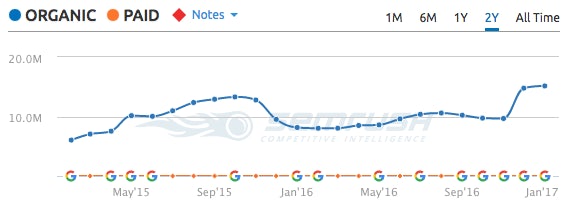
Screenshot taken from SEMRush. Ironically enough, it even looks as though Genius even benefited from Google’s recent Penguin 4.0 update - Miloco Studios – https://milocostudios.com/
Miloco Studios are the world’s largest provider of recording studios in the world. With an impressive portfolio of clients including the likes of Pink Floyd and Adele, they are undoubtedly a large authority within the audio production industry. They also provide several other audio production services to recording artists, including drum loops and recording equipment.During my tenure as an SEO executive in a previous life, I was fortunate enough to actually assist Miloco Studios in a website migration project of theirs. The project involved a site redesign, and since this involved the creation of new pages and URLs, a proper 301 redirect plan needed to be put in place to ensure the site successfully maintained its organic positioning within search. Again, SEO is massive channel for the Miloco group, with the studio site ranking for 3.5K keywords in the UK alone. Amongst this profile of keywords includes impressive rankings like #1 for both “recording studio” and “recording studios london” – results that no doubt contribute to a serious amount of conversions for the business. Again, I’ve highlighted their organic traffic below:
Screenshot taken from SEMRush, highlighting 5K of average monthly sessions for Miloco StudiosAs a suggestion, a next step for the Miloco Group would be to migrate their numerous web properties, which are all listed here, to single domain. This would serve to consolidate their link authority and consequently boost ranking potential throughout each of their sub-services.
What do artists and music businesses need to start?
A website (or, if absolutely necessary, a mobile app – these rank too). Artists especially have a tendency to only rely on their social media and streaming channels to constitute their online presence. You need somewhere to consolidate all this and somewhere to provide your listeners with a unique experience that provides them with a one-stop-shop for all collateral related to your brand.
Websites are a powerful piece of real estate that offer an unparalleled amount of flexibility. No other third-party platform will enable you to have that much control over your visual identity and no other platform will allow you to retain that much customer acquisition value. For instance, only you own your shopping cart, the email address and other personal information attainable. With digital marketing, audience data is invaluable so it’s imperative that you own yours. By using a website, you can even remarket to these customers via Google AdWords or paid social media for even longer-term retention and customer value.
With website creation, I highly recommend avoiding free platforms like Wix and Moonfruit. Instead, opt for more tailored solutions like those available on WordPress.org and Bandzoogle. With Bandzoogle’s tailored support around music SEO and WordPress.org’s impressive range of plugins, you’re able to get a far more professional web solution on either of these two platforms that aren’t really present on free website platforms. Your music business and/or your band is your livelihood so it’s important to take care of it properly, both online as well as offline.
Applying search engines to artists and bands – where’s the opportunity?
So how can bands incorporate SEO into their digital strategy? With your website now intact, it’s time to consider the opportunity that search engines can offer you.
Keyword research
The first thing artists need to understand is that search engines are not music discovery tools. Listeners do not search for queries like “indie rock bands” or “related artists to X” in their quest to find new music. Streaming services and social media facilitate these requirements and that’s totally fine.
With search, the opportunity lies more within branded search. As Dan Shure mentions, you need to reduce the friction between the artist and the fan and this is something search engines can absolutely facilitate. Take, for example, the American electronic band, Poliça – a band I use throughout this post simply because both their music and web presence is especially awesome. Here’s a summary of what users search for to discover content surrounding this band:
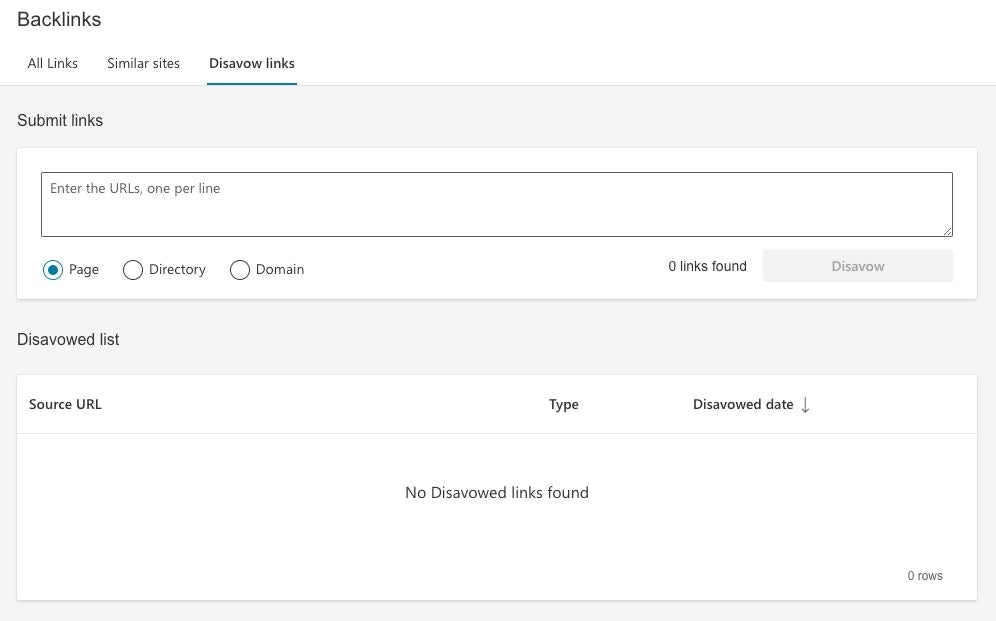
Data extracted from Google Keyword Planner
This reveals the extent of branded search opportunity available through search as well as just how important search engines can be for artists (and in the case of Poliça’s record label, great market research as well!).
By using Google Keyword Planner and searching for keywords related to other, more established bands, you can start to see the types of topics music fans generally search for. Using the Poliça example from above, we can see that users search for information regarding a band’s music and tour schedule, as well as general information regarding the band itself (implied through the keyword “polica band”). You can now use this information to begin sculpting your website’s content. Start by creating an “about” page as well as pages regarding your latest album releases and tour schedule. This approach will serve to capture listeners that may one day look for this information.
You can even go as far as creating dedicated landing pages to each of your songs’ lyrics as users often look for this type of content as well. Below I’ve outlined the search landscape for Poliça’s lyrics to their 2016 single, “Lime Habit”:
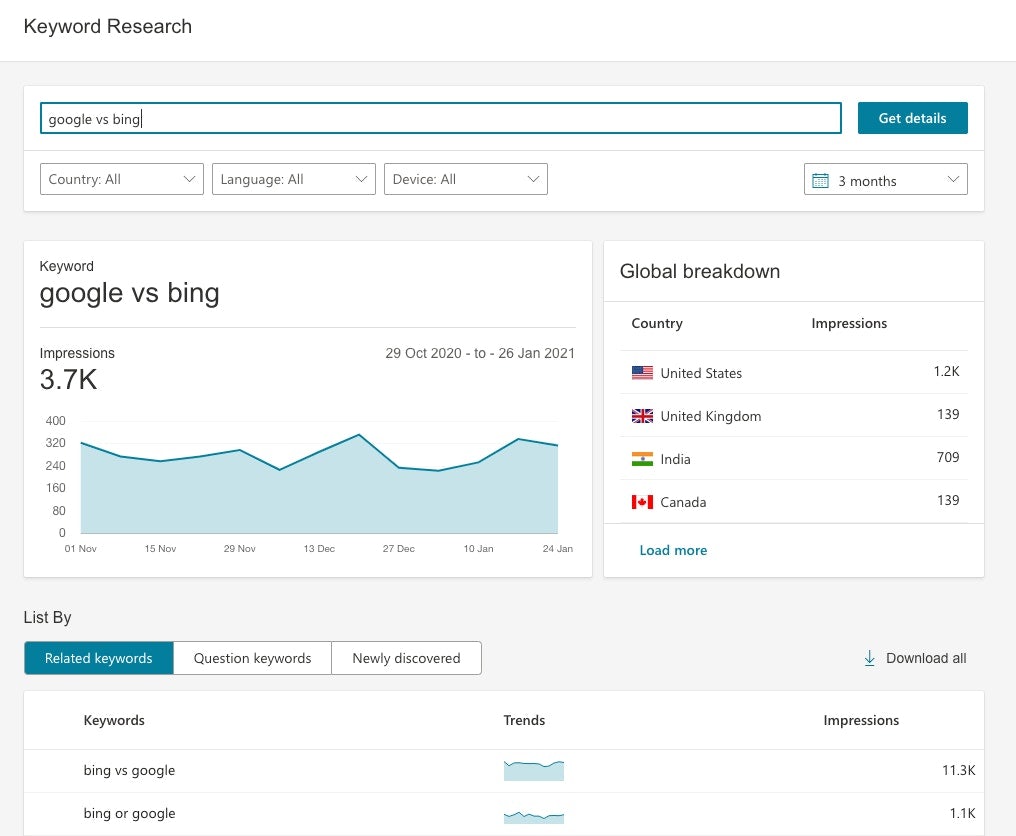
Despite established lyric services already existing from the likes of AZ Lyrics and Genius, your website
might still be able to rank amongst these for types of searches. Poliça currently utilise this strategy and the rewards in SERPs are obvious:

Poliça’s site ranks #3 when your search the lyrics to their song, “Lime Habit”
As a general rule of thumb, target one topic per page. Several bands often opt for one-page site designs, cramming in lots of information at once. Although this is a convenient and neat approach in terms of design, this will serve to dilute your search engine presence overall. You’re essentially muddling up your information, making each individual topic more difficult to extract. By having a page dedicated to each topic, ie. your releases, your gig listings, your videos, your individual band members, search engines are able to better understand your content. They’re then far more likely to serve this content for a more varied profile of brand-focused queries within search results.
Search Engine Results Page (SERP) Integrations
What’s great about Music SEO for artists is the absolute plethora of content Google presents their users for artist-led queries. From the Knowledge Graph to the tour date featured snippet, learning how to encourage these SERP integrations will help your band gain more exposure on search engines. Again, using Poliça as an example, here are some SERP integrations available for artists. Please note, these are visible on both desktop and mobile SERPs;
The Knowledge Graph

Searching for just “Poliça” on Google will present their Knowledge Graph on the right-hand side
Google’s Knowledge Graph isn’t exclusive to the music industry for branded searches, but it’s arguably the most detailed in comparison to other industries.
The graph for artists is absolutely jammed packed with vital information that allows fans to instantly connect with your content via a multitude of your promotional channels. From listening to your band on different streaming services, to following you on Facebook and reading up on your latest release, it’s all attainable through the Knowledge Graph.
Rich Cards for albums and tour dates


Screenshot illustrating the Rich Cards that are presented to users when they search for information regarding albums and tour dates.
You can encourage Google to present its Rich Cards feature via various methods, which we’ll discuss later. However, for now, it’s just important to be aware of this functionality. Within the music business, Rich Cards are specifically used to display content surrounding your albums, songs, and tour dates. Again, a great way to connect users directly with your core musical products.
Live Dates Snippet
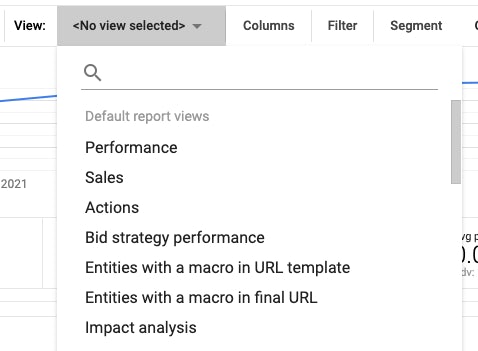
Screenshots illustrating how Google displays tour dates
Google present events, such as gigs and tour dates, as snippets similar to the one featured above. This allows your fans to access information about your upcoming gigs when they search for it. Information like venue, address and times are presented along with a pinned location on Google maps to aid the user’s travel. I explain later which platforms are best to use to encourage this functionality.
Social Media Featured Snippets

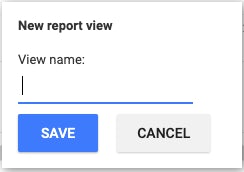
Screenshots illustrating how Google can display your content from Twitter and YouTube respectively.
Since YouTube is a Google-owned product, it makes sense that they pull content through from their video sharing platform to their search engine results page. It adds another integration to the SERPs and provides their users with increased usability. The Twitter carousel only started appearing in SERPs from 2015 after a formal partnership was made between Google and the social networking service.
Lyric Featured Snippet

Screenshot above displaying the lyrics Featured Snippet in Google
Although you can rank organically for lyrical-based searches, Google will sometimes dominate this search topic by opting to display the lyrics snippet. These types of snippets were first discovered in 2014 and were poised to ruin lyric sites, like those from the aforementioned Genius and AZ Lyrics.
How can artists exploit SERP integrations?
The amount of SERP integrations available to artists is admittedly a little daunting. Amongst all the other responsibilities an independent artist needs to take care of, it looks as though bands now need to concern themselves with practices related to web design as well. Thankfully, this isn’t necessarily the case. Encouraging these integrations for your band isn’t overly difficult and requires very little technical implementation. Many are even concerned with simple digital marketing
Encouraging these integrations for your band isn’t actually overly difficult and requires very little technical implementation. Many are even concerned with simple digital marketing practices. Bear in mind, the operative word here is “encourage”. Unfortunately, due to the nature SEO, you can never guarantee anything. You can only increase signals that you know Google’s algorithm looks for in order to achieve the results you require. With this in mind, utilise the following processes to influences more SERP integrations for your band:
Adopt a unique artist name
It may sound obvious but this consideration is often overlooked. Without compromising your artistic integrity, you need to consider an artist name that’s as unique as it can be. Try to avoid anything that could be semantically associated with something else. Not only does this make it more difficult to be found on other music services, you’ll also need to work harder to encourage Google to understand that, contextually, searchers mean your band when they search for you, not other related entities.
Don’t get me wrong, it can certainly be done – look at the band “elbow”, for example. When you search for “elbow“, you’ll notice that Google knows that you mean the Manchester-based rock band, not the joint. This is to do with various ranking and user intent data Google has. Although it is achievable, it’s much harder to influence this, especially for newly formed bands. You can encourage being more contextually identifiable immediately by opting for names that are longer than one word in length. This will allow you to rank for your band name more easily and obtain that all-important Knowledge Graph much quicker.
From there, you need to ensure that your band name is consistent wherever it’s printed on the web. In the case of Poliça, this should always be formatted with the latin script “ç” to further strengthen the relationship between the word and the band.
Create profiles on both Wikipedia and MusicBrainz
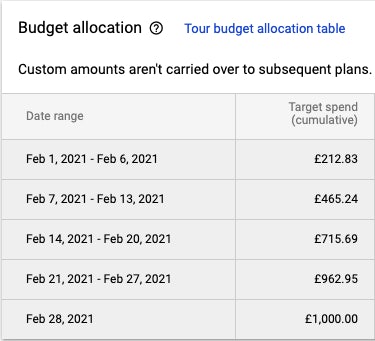
SEO is as much about off-page signals as it is about on-page signals and this piece of advice is a perfect example of that. Google explicitly states in their guidance notes that, in order for you to promote visibility in the Knowledge Graph, you need to try and create profiles for your band on both Wikipedia and MusicBrainz. Although this may be difficult to do initially, it’s something you can aspire to do as your band increases its industry profile. You can read inclusion criteria for Wikipedia here and for MusicBrainz here. Again, this will help your band’s profile to be pulled into the Knowledge Graph, in particular, the information about your band’s website address, biography, band members and genre
Create profiles on relevant Google properties
Although this approach hasn’t been confirmed by Google, the rationale for it is completely sound. If your band is already a part of Google’s ecosystem, it’s more likely that its search algorithm will better recognise and understand you as a band. From there, it’ll find it easier to pull your content through in SERPs. It’s clear that multi-platform integrations in SERPs are a key focus for Google and it’s no coincidence that Google-owned properties are at the forefront of that. In particular, I’m referring to Google Play Music’s catalogue being used in the album release Rich Cards and Youtube videos being used for their own featured snippets (as seen previously). To trigger this functionality, it follows that your content needs to be presented properly on these platforms with the relevant information properly tagged. Although you can upload YouTube videos yourself quite easily, you can use digital distribution services like those from Spinnup to become listed on Google Play Music.
Don’t forget about creating a brand profile on Google+, either. I appreciate this platform’s usage has substantially decreased over the years, but to reinforce Dan Shure’s sentiment, I would also be surprised if this data isn’t also used by Google to influence the Knowledge Graph results.
Use the approved third-party platforms to list live dates

Google uses information from approved third-party platforms to list live dates. These dates are recommended due to their implementation of schema markup
In addition to the streaming and downloading of music, performing live is obviously another revenue channel for active bands. It’s important, therefore, that your tour dates are listed and maintained regularly on your site. Instead of creating a bespoke module that allows you to input your tour dates manually, it’s a better use of time to use a third-party platform. These then enable you to have a single location to input your tour dates. From there, your tour dates will appear consistently across all your marketing channels that use the third-party platform.
Although several third-party gig platforms exist, for the purposes of Music SEO, I recommend using platforms that come recommended by Google. This list includes the likes of GigPress, Songkick, Bandsintown, BandPage and Reverbnation.
These types of sites all use the schema.org markup, “MusicEvent” which allow search engines to better understand key information about each of your live gig listings. By incorporating this type of markup with each event listings, search engines can display the data as featured snippet as displayed above.
Sign up to LyricFind
Google partnered with LyricFind, the world’s largest lyric licensing service, in June 2016. The partnership allowed Google to have access to the company’s lyrics database in order to populate the lyric snippets we outlined previously. With this type of data, Google could now facilitate heightened usability for millions of additional lyric-based searches. Google also uses data from LyricFind to display lyrics in their Play Music app.
In order to obtain the lyric snippet, you need to submit your lyric content to LyricFind. Thankfully, this is actually quite simple, that is if your publishing company haven’t done this for you already. Below is the recommendation lifted directly from LyricFind:
If you are a copyright holder submitting content for your own catalog, please email us at publisher@lyricfind.com. We will coordinate with you to ensure a smooth process for a large amount of content. For small submissions, please email content@lyricfind.com.
With your music on Google Play Music and your lyrics now submitted to LyricFind, this should be enough to encourage Google to display your lyrical content within their lyric snippet.
Be active on social media
In order to have your social media profiles pulled into the Knowledge Graph, it follows that you actually need to be active on the related platforms. We’ve already discussed the importance of YouTube and Google+ so now it’s time to ensure you have all your other accounts ready. Twitter and Facebook are obviously vital, but it’s also common for Instagram to be pulled through as well. To encourage social icons into your Knowledge Graph, this the bare minimum you need to do.In addition to having increased detail on the Knowledge Graph, a Twitter profile will also enable you to exploit the Twitter carousel that can sometimes appear in SERPs for branded searches, as displayed earlier.
In addition to having increased detail on the Knowledge Graph, a Twitter profile will also enable you to exploit the Twitter carousel that can sometimes appear in SERPs for branded searches, as displayed earlier.
For best practice, try and have your social media sites navigable via a similarly formatted URLs to that of your website address. For example, if your domain is thisispolica.com, your Facebook and Twitter account should be discoverable via facebook.com/thisispolica and twitter.com/thisispolica respectively. Again, this will again help search engines understand the connection between your social media profiles, your website and your band name.
Introduce schema markup for artists
To increase the likelihood of your information being pulled into SERPs, the final piece of the puzzle for artists is the implementation of schema.org. Although the other pieces of advice listed previously were relatively simply to implement, unfortunately, schema.org does come with an element of technical know-how.
Schema.org, or more commonly referred to as simply “schema”, is a form of markup language that was introduced by all the major search engines in 2011. The language enables site owners to “tag” their content in a pattern that enables search engines to better understand it. For example, using schema.org, you can identify to search engines that your band is, in fact, a band, and that your latest release is, in fact, an album. Whilst thousands of schemas exist pertaining to several different industries, only a few relate to the music industry.
We have already looked at the “MusicEvent” schema in the live dates section so I’m now going to spend some time looking at other schemas relevant to the music business, i.e. the “MusicGroup” and “MusicAlbum” schema.
MusicGroup – http://schema.org/MusicGroup
This schema allows you to list all basic information about your band, including your band name, website address, logo and press shot. The “sameAs” tag is particularly noteworthy here as you can use this field to list all your social media profiles. Utilising this tag serves to increase the chances of your social media profiles appearing in the Knowledge Graph.
<script type='application/ld+json'>
{
"@context": "http://www.schema.org",
"@type": "MusicGroup",
"name": "Poliça",
"url": "http://www.thisispolica.com/",
"sameAs": [
"https://www.facebook.com/thisispolica",
"https://twitter.com/thisispolica"
],
"logo": "http://cdn.shopify.com/s/files/1/0219/6940/products/PolicaUC_Cover_RGB_large.png?v=1446770644",
"image": "https://static1.squarespace.com/static/534eeaf9e4b066e96f6d742d/t/5532685ce4b0a33a05a96793/1429366877848/?format=750w"
}
</script>This snippet can be featured on every page of your band’s source code, but at a bare minimum, needs to appear the source code of the homepage.
MusicAlbum – http://schema.org/MusicAlbum
The music album schema is used to identify to search engines exactly that, music albums. Although this schema can be found on the site of Apple Music, you can also use it on your own site to further encourage your music to be displayed in SERPs via Google’s Rich Cards.

As previously mentioned, schema for artists and bands is a relatively complex area, especially with regards to implementation. If your site is powered by WordPress.org then plugins will be available that can faciliate schema implementation for you. Otherwise, have a read of Bandzoogle’s dedicated guide on optimising your band’s schema for more information.
Applying search engines to the music business; a shift back to normality
Whilst search engines are not discovery tools for artists and bands, they can be used as discovery tools for music businesses. Here the funnel flips back to normal, with SEO serving the same benefits to a music business as perhaps social media does.
Let’s use the consumer journey towards purchasing a monthly subscription to the music streaming service, Spotify, as an example. As with any consumer journey, there are going to be three distinct phases to making a conversion, these are awareness, consideration and conversion.
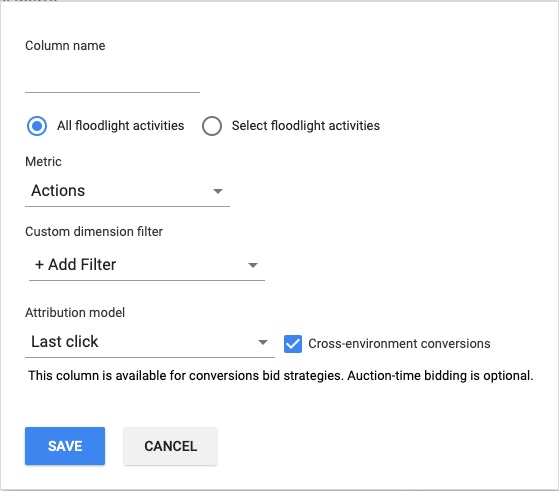
You may have also seen the consumer journey being referred to as see, think and do, as per Avinash Kaushik’s original identification
Phase #1 – Awareness – the user types in, “music streaming services”
At the beginning of the consumer journey, the user appreciates that music streaming services exist but they’re not aware which products are available on the market. The user inputs “music streaming services” into Google to discover more about the technology. The websites listed explain what a music streaming service is and what options are available on the market.
“music streaming services” receives 8,100 searches per month in the UK on Google.
Phase #2 – Consideration – the user types in, “spotify vs apple music”
The user has now researched the market, they’re potentially keen on investing in some type music streaming software but they’re unsure which. Several options exist from several different providers. To narrow down their search, they input “spotify vs apple music” into Google. The results list the differences in each platform, including price plans, audio streaming quality and catalogue size, to allow the user to make an informed purchase decision.
“spotify vs apple music” receives 22,200 searches per month in the UK on Google.
Phase #3 – Conversion – the user types in “spotify subscriptions”
The user has now decided to go with Spotify’s software and heads for purchase. They type in “spotify subscriptions” to make one final decision on which version of Spotify they would like to purchase. Once they have decided which subscription option is best suited to them, they add to that package to their basket and purchase Spotify as their music streaming solution.
“spotify subscriptions” receives 720 searches per month in the UK on Google.
The example above clearly identifies how SEO can facilitate the entire consumer journey. It also reveals why so many business owners use the channel to encourage growth within their business. With enough resource and focus, SEO is malleable and can help facilitate whatever objectives you want it to achieve.
With music SEO catering to all three phases of the purchase process, this immediately opens up non-branded keyword opportunities. These are search queries that are non-specific and concerned with your general service areas. This is actually where the main differential between SEO for artists and SEO for music businesses lies; whilst artists only need to concentrate on branded keywords, music businesses can also target non-branded keywords as a means of attracting business. Let’s discuss how a music business can achieve this now.
Start with keyword research
Keyword research is the bread and butter of SEO and your music business can use the discipline to inform your site’s content structure. This is the process of identifying exactly which pages your site needs in order to perform well in search. The premise of keyword research simple; if there’s search volume around a relevant topic, your site needs to include a page to properly target the keyword.
At this juncture, you can jump back to Google’s Keyword Planner to discover exactly what topics users are searching for around your music business service. Start by entering your seed keyword(s), i.e. those that are most summative of your music business, to see what other topics may be relevant to include.
For sake of argument, let’s conduct keyword research for a music business that offers something simple, for example, a recording studio for musicians and bands based in Bristol. To begin, input “recording studio” and “recording studio bristol” into Google Keyword Planner to determine what other topics your site could talk about. Below is an example of what your output could typically look like:
| Keyword | Avg. Monthly Searches |
| recording studio | 135000 |
| audio mastering | 2400 |
| mixing and mastering | 2400 |
| online mixing | 2400 |
| music mastering | 880 |
| mastering services | 720 |
| recording studio bristol | 260 |
| bristol recording studios | 170 |
| rehearsal rooms bristol | 90 |
| recording studios in bristol | 70 |
| music mixing services | 70 |
| practice rooms bristol | 50 |
| bristol recording and voice studios | 30 |
| studio hire bristol | 30 |
| music studios in bristol | 20 |
With this list of topics, your site can now become immediately more informed. You can begin to create content with purpose as you know what the online market looks like for these types of services within the UK.
At this point, you can start considering the best approach to capture these keywords on your site. Again, I’ve included an example below of how this can be arranged:
| Keyword | AMS | Format | Content idea |
| recording studio | 135,000 | Homepage | To be used amongst the homepage, along with “bristol” qualifier to make search performance more realistic. |
| audio mastering | 2,400 | Service page – child | Core service page where artists mix with engineer |
| mixing and mastering | 2,400 | Service page – parent | Service page to house mixing and mastering services |
| online mixing | 2,400 | Service page – child | Core service where the artist is not present during the mixing process |
| mastering services | 720 | Service page – child | There’s space to target this in conjunction with “audio mastering” |
| recording studio bristol | 260 | Homepage | To be included amongst my homepage as my main target keyword |
| rehearsal rooms bristol | 90 | Service page – parent | Space permitting, I could also offer rehearsal rooms? |
| practice rooms bristol | 50 | Service page – parent | Use on-page as a synonym to “rehearsal room” |
| bristol recording and voice studios | 30 | Service page – child | Could “voice studios” be a separate service? Purely to attract voice recording |
| studio hire bristol | 30 | Service page- parent | Core service page where recording artists can hire the studio with no engineer. |
With these additional notes, your music business can now start to take shape amongst its search engine landscape. You know what service pages to include because you know how users are searching for them. From here, you can begin a process of optimising each service page.
Next, create well optimised, dedicated service pages
Music SEO is essentially categorised into two schools of activity; content creation and content promotion. This section deals with the former, identifying how to create content that is optimised so search engines can better understand it.
When a search engine crawls your site, it looks at several different on-page factors to determine how well each page on your site should rank in SERPs. As a music business marketer, it’s your job to know what these are. Let’s break some key on-page optimisations considerations down:
Title tags and meta descriptions
These are the elements that encompass your presence in SERPs. The blue title is referred to as the “title tag” whilst the description below is known as the “meta description”. How these elements are constructed can actually play a significant role in your ranking performance so it’s important that these are both keyword optimised and written persuasively. When optimising a web page for search, these two tags should always be your first port of call. Below is an example of a well-constructed title tag and meta description from Attic Attack Studios, a recording studio based in Bristol:
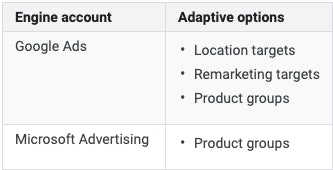
URLs
Your website URLs are another element that are presented in SERPs and play an equally important role in determining how well your pages will perform in search. With URLs, it’s simply a case of ensuring they’re summative, concise and include whatever keyword you’re attempting to target within them. Below is an example of a well-optimised URL from Real World Studios in Bath, targeting the service keyword “eMixing”:

Body Copy
This simply comes down to the words you include on the page. As well as making your copy keyword optimised, it needs to read naturally and written primarily for users in mind, not search engines. Also, consider synonyms to make your topic relevancy varied. If you’re talking about “recording studios”, it makes sense to also include associated topics like “audio production”, “acoustically treated” and “the studio environment” as these are phrases users and search engines expect to see amongst the wider topic of recording studios.
Although there are several on-page considerations to consider, the three points above give music marketers a great starting point for conducting on-page SEO. The key takeaway here is to be explicit in what you’re targeting whilst also catering your content with the user primarily in mind. It’s also important to remain on the ethical side of content creation; Google’s algorithm is developed by engineers with PhDs so it can identify when you’re attempting to use spammy web practices!
Finally, gain amplification through Digital PR
Arguably the biggest SEO ranking factor for any business, regardless of whether or not it’s positioned in the music industry, is your off-page profile. This comes down to how frequently you’re talked about online and by whom. Search engines need a way of ranking websites based on trustworthiness and popularity so they use off-page signals to do this. In particular, they’re looking for features, mentions and, most importantly, backlinks so the most ethical and viable way of achieving this is through Digital PR.
Once your music business’s website is set up and optimised for search, you need to construct a Digital PR strategy in order to acquire these features and backlinks. Only then will your website truly gain visibility in SERPs.
To do this, consider breaking your music business down into stories and talking points. Essentially, what you need to ask yourself is, “what can you talk about that relevant journalists and editors will find interesting?“. This can be anything, from talking about yourself as a music business start-up or even contributing opinion pieces, how-tos or case studies to relevant music industry press. Although this is arguably the hardest element of search marketing, it’s also the most rewarding part when executed properly. Additionally, getting your business featured in relevant publications is not only beneficial to your search engine visibility, it’s also important for general brand awareness, too. This harks back to my previous point where utilising SEO can benefit several channels of your marketing funnel, not just search rankings themselves.
Rounding it up
Hopefully, this serves as a good introduction to the world of Music SEO for both sides of the music business fence; artists and music businesses alike. For bands, it’s about realising the opportunity with branded search. Your listeners may discover you on streaming services, social media or by seeing you play live, but you can use search engines to reduce the friction between the artist and the fan. For music businesses, you can use search engines in order to be found for the services you offer. Whether you’re a covers band or music producer, users search for businesses like yours so it’s equally as important to be optimised for both non-branded keywords as well as branded keywords.
What experiences have you had implementing Music SEO? Start the discussion below by sharing any challenges you’ve faced ?




